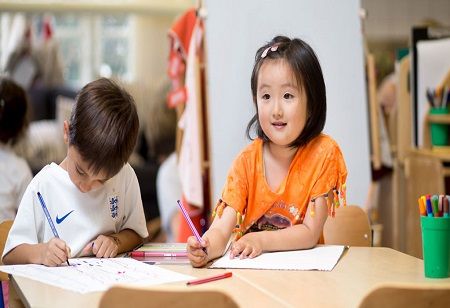The Chinese government has announced plans to gradually make early childhood education free to help ease the financial burden on families, encourage consumer spending, and address the country’s declining birthrate. The new initiative will focus on providing free education for children in the three years before they enter elementary school.
The National Development and Reform Commission revealed the plans earlier this month during the National People's Congress. As part of the effort, a new subsidy system will be created to cover the costs of early childhood education, with local governments working alongside the national government to implement the plan.
A new law, set to take effect in June, will ensure that early childhood education is free in areas where conditions allow. The program will be rolled out gradually, starting with economically developed regions that have a strong revenue base, such as Greater Shanghai and Guangzhou and Shenzhen in Guangdong province.
Early childhood education, which includes preschool or kindergarten for children between the ages of three and six, is currently a significant financial burden for many families. The cost of kindergarten varies by region and whether the institution is public or private. On average, the yearly cost ranges from 10,000 to 50,000 yuan (about $1,400 to $6,900), which can account for 6% to 30% of a household’s income, based on the disposable income of urban residents.
This financial pressure comes at a time when China faces a declining birthrate. Years of the one-child policy, which was gradually relaxed starting in 2016, led to fewer children being born. Economic challenges in recent years have made many couples reluctant to have children, with the number of births in 2024 being about half of what it was in 2016.
Despite the declining number of children, Chinese parents remain highly focused on their children's education. Many parents send their children to private kindergartens or invest in extracurricular programs like English and music lessons. This focus on education has driven up costs, further straining household budgets.
The cost of raising a child in China is significantly high. Estimates show that the cost of raising a child to adulthood is 6.3 times the country’s gross domestic product (GDP) per capita, placing China second only to South Korea among 14 major economies, where the cost is 7.8 times the GDP per capita.
In response to these financial pressures, China’s Ministry of Education introduced new regulations in 2021, including price controls on private education companies. However, these measures led to the closure of many private education businesses, forcing families to rely more on expensive private tutors, which in turn increased education costs.
Finance Minister Lan Fo’an also announced plans to introduce child benefits as part of the government’s efforts to support families. Some local governments, such as Shenzhen and Jinan in Shandong province, have already been offering these benefits, but the central government plans to create a nationwide subsidy system. The goal is to provide further support to families and encourage consumer spending.
One challenge to the success of these plans is local government finances. In recent years, the sale of land use rights, a major source of revenue for local authorities, has decreased by nearly 50percent. This means that some local governments may struggle to fund child benefits, especially in less affluent areas.
Despite these challenges, the Chinese government is committed to helping families by providing more support for early childhood education and child benefits. Similar programs have already been implemented in other countries, such as Japan, which made early childhood education and childcare free in 2019, and the U.S., U.K., South Korea, and Mexico, which offer varying levels of support.
Through these efforts, China hopes to ease the financial burden on families, boost the economy, and encourage more births in the future.

